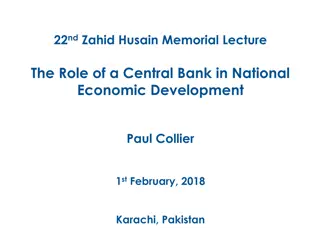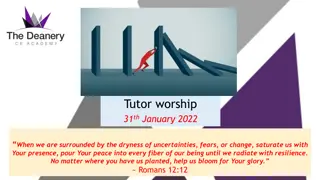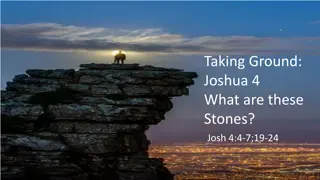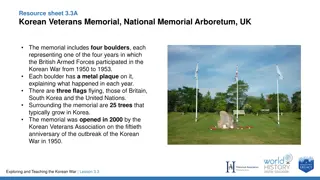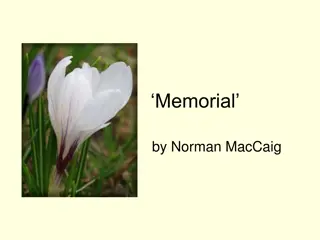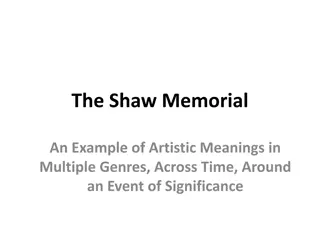
Exploring the Enduring Legacy of Norman MacCaig
Delve into the lasting impact of Norman MacCaig's poetry, particularly in Scottish schools. Discover what makes his work resonate across generations, from accessibility to nuanced perspectives on life and death. Explore the profound themes and timeless beauty of MacCaig's poems through the lens of literary experts and educators.
Download Presentation

Please find below an Image/Link to download the presentation.
The content on the website is provided AS IS for your information and personal use only. It may not be sold, licensed, or shared on other websites without obtaining consent from the author. If you encounter any issues during the download, it is possible that the publisher has removed the file from their server.
You are allowed to download the files provided on this website for personal or commercial use, subject to the condition that they are used lawfully. All files are the property of their respective owners.
The content on the website is provided AS IS for your information and personal use only. It may not be sold, licensed, or shared on other websites without obtaining consent from the author.
E N D
Presentation Transcript
The 'Poets' Pub' painting shows those writers known as the 'Big Seven' arguably the most influential Scottish poets of the post-war era. But of this group Norman MacCaig, Hugh MacDiarmid, SorleyMaclean, Iain Crichton Smith, George Mackay Brown, Edwin Morgan and Robert Garioch it is the work of MacCaig and Morgan which remains the most popular in Scottish schools.
But what is it about his work which sees it endure from one generation of Scottish pupils to the next? According to literacy advisor and former English teacher, Bill Boyd, the biggest factor keeping MacCaig alive in the classrooms is the accessibility of MacCaig's work.: "There's very little you read of his and think 'I don't really get that'. For instance, Basking shark is about an encounter with a basking shark. Watch these clips where Seamus Heaney discusses the strengths of Norman MacCaig's poetry and Jackie Kay discusses his poetry's tendency to make you look at something simple in a different light: http://www.bbc.co.uk/scotland/arts/the_enduring_appeal_of_norman_maccai g.shtml
The life's work of MacCaig is, by any standard, a hugely impressive legacy one that speaks for itself. He skilfully produced many different types of poem and all are timeless in their own way. Some may favour MacCaig's playfulness, for others it might be how he evokes certain landscapes. For others, it's those poems MacCaig produced as he grew older and began to lose those close to him work that is full of grief that lingers most. Memorial Norman MacCaigon the effects of death on his work and reading Notes on a Winter Journey and Memorial : http://www.bbc.co.uk/scotland/arts/the_enduri ng_appeal_of_norman_maccaig.shtml
Memorial Everywhere she dies. Everywhere I go she dies. No sunrise, no city square, no lurking beautiful mountain but has her death in it. The silence of her dying sounds through the carousel of language. It s a web on which laughter stitches itself. How can my hand clasp another s when between them is that thick death, that intolerable distance?
She grieves for my grief. Dying, she tells me that bird dives from the sun, that fish leaps into it. No crocus is carved more gently than the way her dying shapes my mind. But I hear, too, the other words, black words that make the sound of soundlessness, that name the nowhere she is continuously going into.
Ever since she died she can't stop dying. She makes me her elegy. I am a walking masterpiece, a true fiction of the ugliness of death. I am her sad music.
Exposing the poem Class discussion On a first reading, what do you think the poem is about? What don t you understand on first hearing? Are there any lines or words which you find unusual, interesting or memorable?
Group Work Listen to the poem being read aloud a second time. In your groups, prepare detailed answers to these questions. Each person should take responsibility for feeding back to the class for each question. 1. What is the poem about on the surface? 2 Who is speaking in the poem? Who are they speaking to? 3.How does the poem use language to convey its message and what techniques can you identify? 4.What are the themes or ideas behind it? 5. What response does the poem elicit from the reader/ you?
Understanding Vocabulary Highlight an unfamiliar/difficult words in the poem. Try and work out what they mean from the context of the poem. You may use a dictionary or your phone to look up definitions. Write the definition in your jotter.
Imagery Paired Work Use a different coloured highlighter for each of the following: 1. Examples of imagery 2. Sound techniques 3. Interesting word choice 4. Examples of repetition
Elegy In literature, an elegy(from the Greek word for lament ) is a mournful, melancholic or plaintive poem , especially a funeral song or a lament for the dead. "Elegy" (sometimes spelled el gie) may denote a type of musical work, usually of a sad or sombernature. A well-known example is the l gie, Op. 10, by Jules Massenet: http://www.youtube.com/watch?v=ezwvgug9n eo (Piano) http://www.youtube.com/watch?v=sGXESZR0r fM (Cello)
Elements of a traditional elegy The elements of a traditional elegy mirror three stages of loss: First, there is a lament, where the speaker expresses grief and sorrow. Then praise and admiration of the idealised dead. Finally consolation and solace. These three stages can be seen in W. H. Auden s classic In Memory of W.B.Yeats , written for the Irish master: http://www.poemhunter.com/poem/in-memory-of-w-b-yeats-2/
Why do you think this is relevant to the poem? She makes me her elegy. I am a walking masterpiece, a true fiction of the ugliness of death. I am her sad music. Think about the elements of a traditional elegy. How does Memorial follow this? Why do you think MacCaig writes I am her sad music? What is his message about the function of Art (poetry, art, music, literature).
Music The philosopher Plato wrote about banishing certain types of music which had harmonies expressive of sorrow as he believed it had the capacity to weaken his armies. (http://theoryofmusic.wordpress.com/2008/08/04/music-in- platos-republic/) 1.What type of music creates an emotional reaction in you? Compare http://www.youtube.com/watch?v=U5TqIdff_DQ - James Brown I Feel Good http://www.youtube.com/watch?v=LwsaoLEvWbw - Adele Someone Like You 2.Can music create an emotional reaction in the listener? http://www.youtube.com/watch?v=Ds8ryWd5aFw - Opera en el Mercado Why do you think the people in the clip react the way they do? Some with laughter, tears, wonder
Opera en el Mercado Why do you think the people in the clip react the way they do? Your answers: Music unites people /brings everyone together. The sound does something to the soul. The sound captures certain emotions. It brings the opera to the market. Democracy. People who are not used to listening to that type of music have a chance to experience it.
Literature, Art, Poetry Discuss Can they create an emotional reaction in the same way music does? Give examples. Is it possible to capture sadness in these forms or do you think this is difficult? ( But I hear, too, the other words, the black words that make the sound of soundlessness ) Is it possible to create something beautiful out of despair?
MacCaigseizes the fleeting moment in his verse in order to transform it, or to reveal it, in an affirmative act of praise and endless celebration. The celebration is endless because the poet s art lives on, long after what inspired it has changed or passed away. ( Scotnotes, The Poetry of Norman MacCaig ,p.40) Why does the narrator become her masterpiece? She makes me her elegy. I am a walking masterpiece, a true fiction of the ugliness of death. I am her sad music. What is MacCaig implying about the permanence of art and, in turn, the memory of the woman? Dutch author Hans Christian Andersen once said: "Where words fail, music speaks. Why do you think this is relevant to the ending of the poem?








